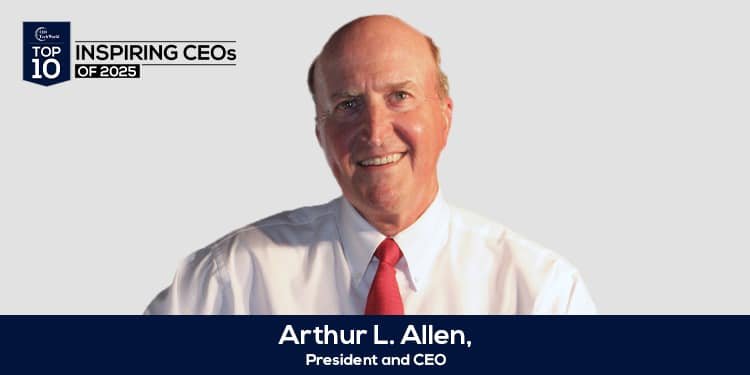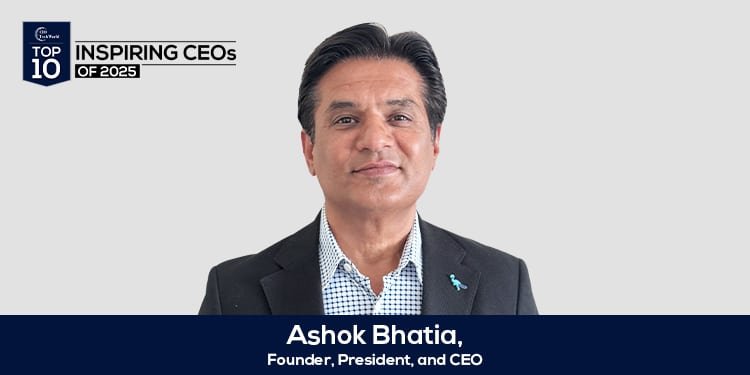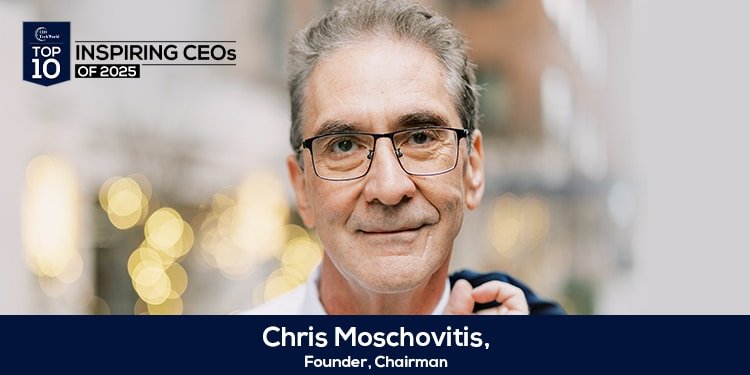Wilfredo Lassalle’s career growth story exemplifies what an individual can achieve with an unwavering spirit. He couldn’t secure an IT job due to his lack of skills. The circumstances presented him with only one pathway to acquire IT skills, and that was through employment. He found himself trapped in a catch-22 situation. However, an opportunity arose when a friend offered him a position at their IT support startup, effectively addressing this dilemma. The skills he acquired at this startup proved invaluable in securing a position at Iron Mountain, a well-established company. Despite lacking a degree and certifications, he yearned for further professional growth.
While working at Iron Mountain, Wilfredo pursued traditional avenues to acquire the necessary skills, enrolling in certification courses. The combination of experience and certifications significantly accelerated his career trajectory. Moreover, his networking efforts paid off when he crossed paths with a CIO who became his mentor, opening doors to executive-level opportunities. Eventually, he ascended to the position of Senior Vice President of IT at Citigroup. Seizing an opportunity, he transitioned to become the CIO of a startup, tackling their digital transformation challenges head-on.
Presently, Wilfredo stands as the Founder and CEO of Simplix IT, a go-to risk and compliance solutions provider. Wilfredo firmly believes that hard work, networking, mentorship, and unyielding perseverance are the vital ingredients in his remarkable growth story. In an effort to share his experiences and guide aspiring executives on their journey to becoming CXOs, he initiated the #NextGreatCIO blog series.
Allow me to present to you the extraordinary journey of Wilfredo Lassalle, a testament to the power of perseverance and ambition.
Describe your career progression from the start to where you are and what were pivotal decisions, moves you made, circumstances, and other facts that facilitated your growth.
My ascension to CIO and subsequently building a startup is an interesting one but one that also similarly follows a mentor of mine. I got my first computer at the age of 11, a Tandy that my father bought for the family. This is when I fell in love with computers. I would stay on that thing day and night, using every single hour of free AOL CDs. Consuming as much knowledge as I could, this is when my love for computers and cybersecurity began and I knew I would want to forge forward with a career in it, scorning my original thoughts of becoming a medical surgeon.
Life has a funny way of working though as fast forward I ended up getting my girlfriend at the time pregnant and was forced to go to work full time and school part time. I ran into the problem of not having any IT experience to land a real IT job, and no one giving me a job in IT to gain experience. I was able to land my first real IT job working for a friend I met who gave me a shot in his fledgling IT support company at the age of 18. I worked there for a few years before the organization closed down and then landed a job through a friend at Iron Mountain.
This is when not having a degree or certifications first hurt me. I was passed up for promotions/raises because I was told I didn’t have a degree or certifications to justify the higher pay or positions open within IT. Finally, I decided I would go back to school and knock out IT certifications. I proceeded to knock out my bachelor’s degree and numerous certifications in IT such as PMP, ITIL, SIX Sigma, MCSE, CISSP, Security+, etc, and obtained my BS IT, but after six years my career at Iron Mountain stagnated and I had to leave. It was scary but I landed a job making close to 6 figures. Which was almost double my salary at Iron Mountain within days of putting my resume out there. After one year at that job, I left to go to Citigroup as an SVP, Global Program Manager. At this point, I knew eventually I would want to be “THE IT GUY” not just the IT guy, basically the top dog in IT aka the CIO.
I proceeded to obtain my MBA in Project Management, and I lucked out with an awesome CIO mentor I met through a friend of a friend of a friend aka networking. The education I received from my mentor was better than any degree or certification I have ever received. He was able to accelerate my path to becoming a CIO better than anything beforehand. He gave me great advice and explained his path to becoming a CIO and I was a sponge for the knowledge he spit.
I started to speak like a CIO, act like a CIO, become more polished as an executive, taking on more and more projects, and more importantly, delivering successfully with maximum value to organizations. I started micro-blogging and blogging on the internet. Created my own hashtag #NextGreatCIO, wrote articles, and volunteered my knowledge in my free time to help anyone and everyone that needed technology strategy and/or expertise. My network grew bigger and stronger. I built a reputation as someone who knew their stuff.
My plan was to become a CIO before the age of 45, I knew it was a long road and I was willing to take it. I took on a role at an organization that was CIO-like, I was the technology head, the SVP of IT, and reported to the CEO of this global organization. I was almost there! Within a year, through my network, I met a young lady that needed her organization to go through a digital transformation. After speaking with her for hours basically doing free consulting speaking about topics I loved and solving her pain points, I said it sounds like you need a CIO to me, and her reply was would you like to be our CIO?
My answer was yes and this is how I became a CIO for the first time.
What are the key skills and qualifications that aspiring tech executives in the tech industry should focus on developing to enhance their career prospects?
The key skills & qualifications aspiring tech executives in the tech industry should focus on are soft people skills, executive presence, and cross-functional domain experience. Your role as a Tech exec moves to more of value to the organization and your peers in the C-Suite. As such you need to understand how technology helps the supply chain, the sales funnels, marketing campaigns, HR onboarding/offboarding, product development & roadmaps, etc. It’s a lot to take in but you don’t have to master any of it, you have to understand it well enough and then communicate well enough the value of IT and how it can enable these depts to flourish in turn supporting the overall organization.
What are some key milestones or achievements that tech executives should aim for at various stages of their career to demonstrate their growth and readiness for higher-level roles?
Some key milestones, and achievements that tech executives should aim for at various stages of their career are a progression in scope of responsibility and to an extent increase in titles. Don’t focus on the money as much as the increase in scope of responsibility and titles which no one can take away from you once obtained. Execute flawlessly on projects and these promotions will come. The money will come. And whatever you do, don’t stagnate even if you have to leave an organization to get a promotion or more responsibility. Do it!
How important is it for tech executives to actively seek out mentorship or coaching opportunities to advance their careers? What benefits can they derive from such relationships?
Mentorships and coaching are critical to being more successful. As I stated previously, I have two master’s degrees and a bachelor’s, and tons of certifications but the best education ever was from my mentor Frank Wander. I was able to learn from his trial and tribulations to become a better IT executive and accelerate my path to becoming a CIO.
In your experience, what role does professional networking play in the career progression of tech executives? How can tech executives effectively build and leverage their networks?
Professional networking plays a very important role in career progression, whether it’s through an internal program at the organization you are a part of, an external professional networking organization like SIM, or just becoming friends with people in your field and hanging out. This has helped me with increased awareness of opportunities, increased learning, and people getting to know me better and know that I know my stuff aka an SME.
Are there any specific certifications, advanced degrees, or executive education programs that can significantly enhance the career prospects of tech executives in the tech industry? Which ones would you recommend?
I’ve always liked taking extra courses to augment the degrees and certifications I currently possess. I believe in lifelong learning and every year I take at least two courses/trainings even if self paced. One technical and one business. So, one year it may be how to secure an Azure environment for technical, and influencing without authority for business. I would also recommend for someone looking to become a CIO to look into an MBA and/or an executive leadership program at a university if you can. There isn’t a specific recommendation I have except to get as much out of the program as possible. Don’t just pay tuition and do assignments to graduate. Take time to align an assignment or research with something that you will experience in the future as a CIO. For example, my capstone project during my MBA was building a PMO from scratch. I got an A, but more importantly, it has been foundational in my subsequently building 3 PMOs from scratch at organizations.
Can you share any examples of notable tech executives who have successfully transitioned from one role (e.g., CIO) to another (e.g., CEO) within the same organization or industry? What factors contributed to their success?
I myself am transitioning to CEO of a startup I built out of seeing a huge need in the cybersecurity space. The skills I have learned and used to become a successful CIO have helped me in the transition to CEO of Simplix. I understand the importance of our CTO, COO, and CFO and what they need to deliver on. I have spent lots of time in C-Suite and board meetings to know what the expectations are which its helped me transition to being a CEO. My wife always told me you have the skills to become a great CEO why not take that next step but it wasn’t until I had the vision for Simplix that I made the leap and I am excited about the opportunity. As a wise man told me before too, if I fail or get bored/tired of it – I can always go back to being a great CIO!
How important is it for tech executives to cultivate a personal brand and establish thought leadership within the industry? What are some effective ways for tech executives to showcase their expertise and gain visibility?
It’s very important to establish a brand and thought leadership for an aspiring executive or any IT professional to be taken more seriously and be considered for more opportunities including the very real and very misunderstood hidden opportunity market. Most roles are filled with someone that is referred or known by the hiring manager. You have very little chance of landing a role if you just throw your application into a digital pile on the internet. But the more people that know you know what you know, the better opportunities that will present themselves to you. When I created the hashtag #NextGreatCIO and started blogging, that caught the attention of a young lady that interviewed me for a publication, the owner of that publication met me and really liked/respected me. I told him about a CIO I really liked just watching/listening to as a keynote speaker at a CIO conference in NYC. He said I know him very well, he’s my neighbor! He had the person send me an autographed copy of his book! I sent this CIO a personal message on LinkedIn thanking him so much for the book and if he ever was near Newark Penn Station to let me know and I would buy him a drink in appreciation. Two weeks later he was coming through Penn Station and we met for that drink. I provided him value during the meeting and at the end of our two-hour chat I asked if he would be my mentor. The rest as they say is history!
Lastly, what advice would you give to aspiring tech executives who are looking to accelerate their career progression and make a lasting impact in the tech industry?
My last piece of advice to aspiring tech execs is to embrace lifelong learning, keep learning, keep growing, keep kicking butt on projects, let as many people know what your goals are, embrace mentorship/networking, don’t stagnate and most importantly never stop enjoying what you do.

As a visionary Business and Technology Leader, I bring a proven track record of driving innovation, fostering collaboration, and delivering exceptional results in fast-paced and dynamic environments. I have honed outstanding skills in articulating a compelling vision and rallying active support from internal executives, development teams, and client business and IT leadership. I am proud to be a member of both the Forbes Technology Council and HITEC (Hispanic Technology Executives Council), which underscores my commitment to being at the forefront of industry trends and developments.
My special talent is demonstrating value to clients at all touch points – I instill these concepts in my teams.








